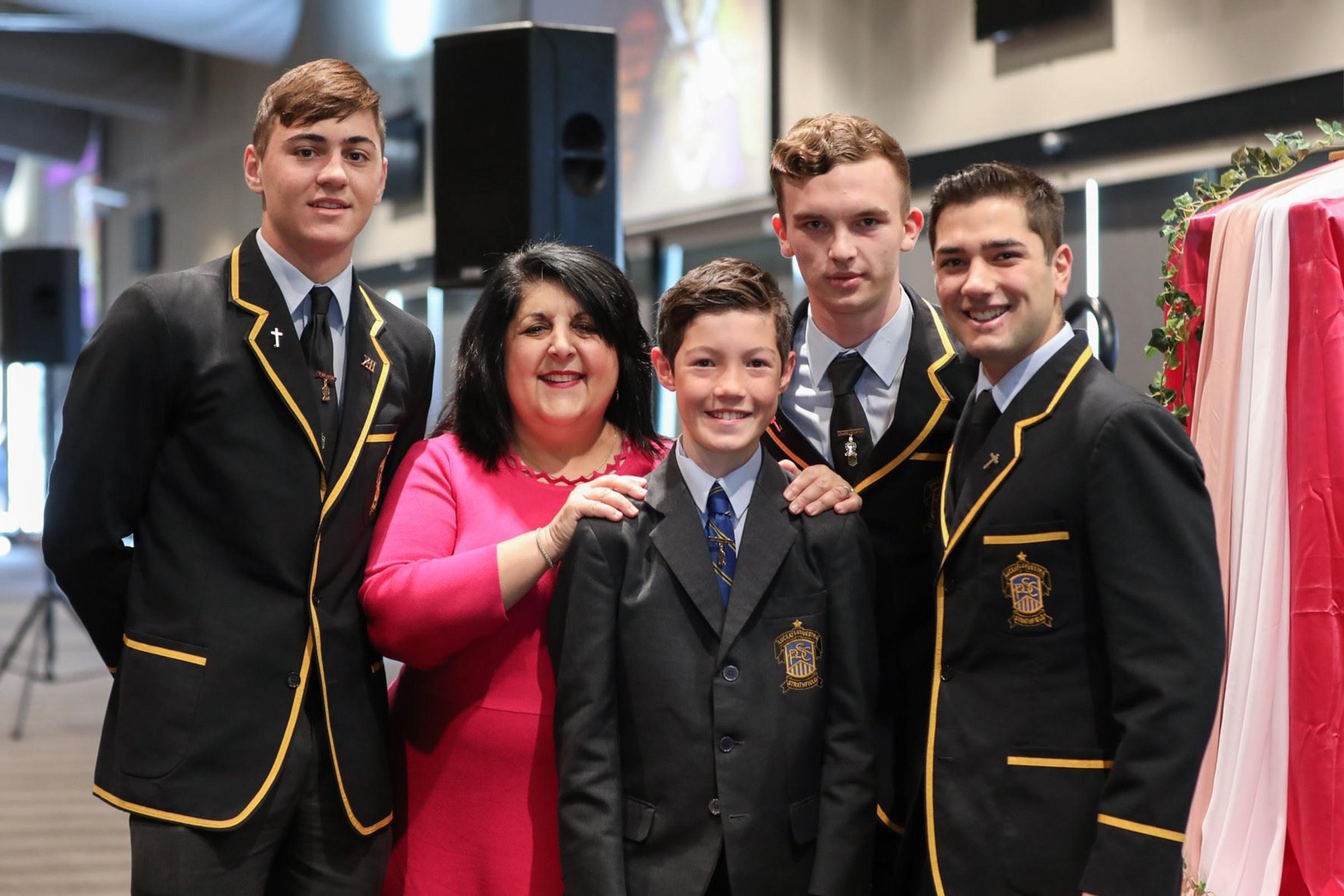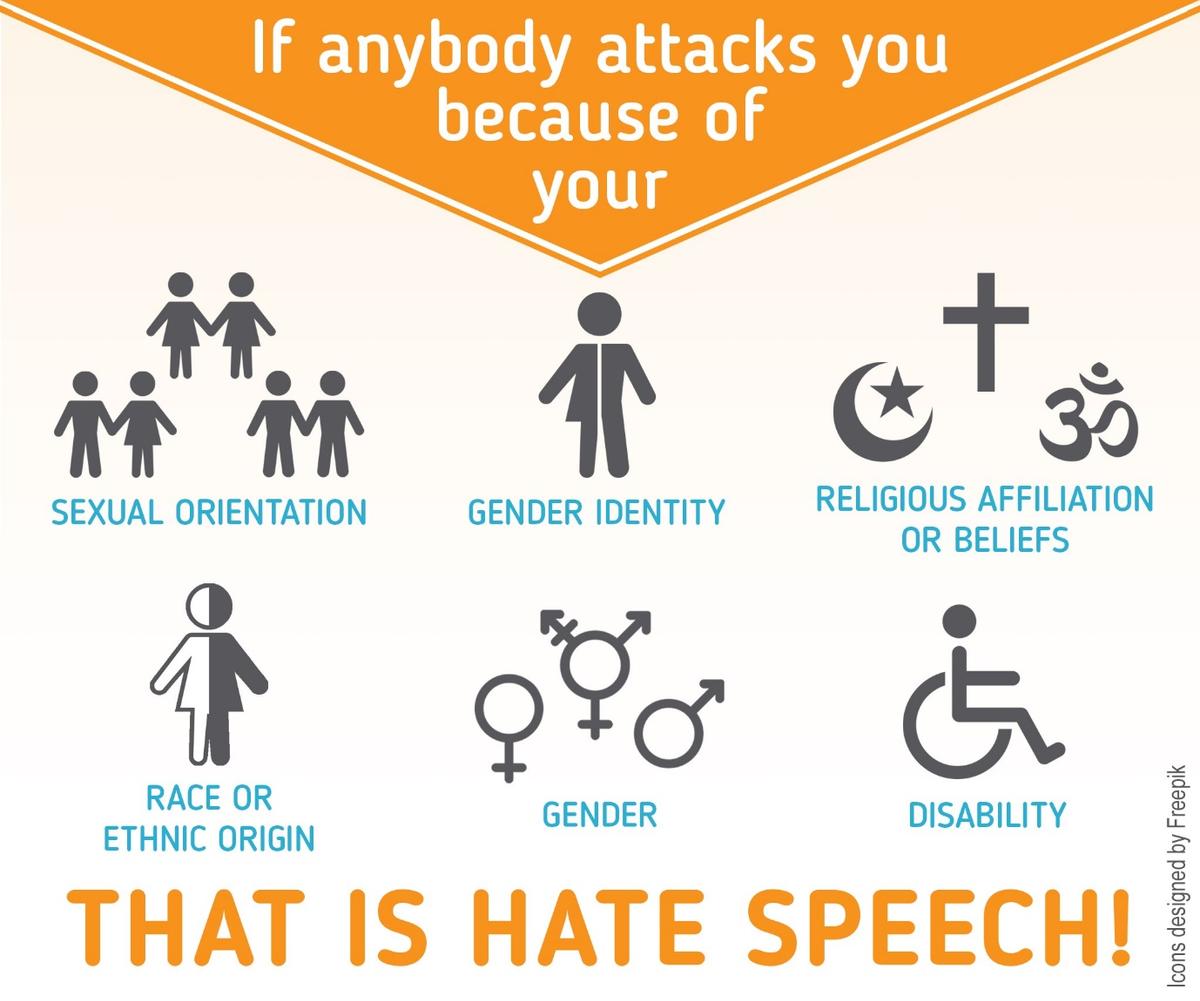Principal

Ending Online Social Media Hate
Recent media reports about online, vile hatred being posted at two well-known independent schools and two of the most sought after public selective high schools in Sydney leave me shaking my head in disbelief.
Sadly, each principal I speak to has had to deal with similar scenarios. We have evidence of the same kind of online behaviour here at St Patrick’s. This disgusting behaviour is happening after school, on weekends and on school holidays when boys are left unsupervised, for hours, on social media. If parents/carers are not securing devices after children go to bed, you can bet that many of them get back online in the early hours of the morning and participate in outdoing themselves in publishing vile content. It is even worse when it is about one of their peers. And then the fallout begins and is brought into the school with the educators left to pick up the pieces of fractured friendships.
If such hate speech is detected, and boys identified, they can experience the full consequences of their actions, beginning with a police report and involvement no matter if it was intended as a “joke” or just the old “boys being boys”. These defences are simply not acceptable, and parents/carers and students are forewarned that we have a zero-tolerance stance.
It is an issue happening all over the world. The European Union has established the SELMA project (Social and Emotional Learning for Mutual Awareness). I would encourage our boys to try the SELMA Hacking Hate Challenge.
All they need to do is to carry out the 12 simple actions. Over a period of three months, choose one action per week and tick as many boxes as you can. How does it sound as an activity to close the academic year? Or something to try in the summer break? They are free to choose when to start it. The important thing is to try it!
Once you have done it, you will realise how easy it is to bring a positive change to your environment, and we encourage you to keep this positive attitude going.
Below you can find all the actions listed in the challenge and some suggestions to complete them in a fun and creative way.
1. Learn some words in a new language
People say that language is the soul of a culture. What better way to start approaching a culture than learning a few words of its language? Do you know how to say "Hello" in French, Chinese or Arabic? What about "I love you"? Aren't you curious about how they say this in Brazil or Italy?
If you have a neighbour or a classmate from another country, why don't you learn two/three words in their language. We are sure they will be very happy to teach you how to pronounce them correctly! It can be really difficult sometimes.
2. Spend 30 minutes reading about a country you've never been to
We tend to take what we have at home for granted, and assume it is the same all over the globe. However, things are very different in other parts of the world.
Take a book from the library or look for information online about a country you have never been to. You can choose any country and topic you want!
If you find interesting facts that you didn't know before, why don't you share them with your peers and us, using the hashtag #SELMA_eu.
3. Try a meal from a cuisine you've never tried before
Many will agree that gastronomy is the best way to discover a new culture! So why not try tasting a new recipe from a foreign cuisine? Have you ever tasted Chinese dumplings, Moroccan couscous, or chicken tikka masala from India? They are all delicious suggestions!
You can ask your parents/carers to bring you to a restaurant or to buy food from a different country in the supermarket, which is cheaper and allows you to learn how to cook it too.
If you have classmates from a different cultural background, why not ask them for a recipe you can try at home? We are sure they will only recommend you the best.
4. Ask people around you how they are feeling today
When was the last time you asked people around you how are they feeling? Meaning really asking about their wellbeing, not a simple "How are you? Instead, you can directly ask them "How are you feeling today?" or "You seem worried, is everything ok?", if you think that the person is not feeling well.
Try to do it this week as much as you can: It can be one person, five, ten... Some people will probably really appreciate you giving them the opportunity to share their feelings.
5. Think how you would feel if you were a victim of hate speech
This action is a call to put yourself in the shoes of others. Sometimes, we tend to forget how other people are feeling in certain circumstances. In this occasion, we want you to think how a victim of hate speech feels. This can be helpful to empathise with them and to find reasons to stand up against the haters.
Some questions that you can ask yourself are:
- What would be my first reaction after the incident?
- How would I feel if this happens once? And what about if it happens many times?
- Would I ask a friend for help? Or rather an adult?
- What kind of insult would be more hurtful for me?
- What reaction would I expect from people around me?
6. Share or like a positive message on social media
This action is an easy one. Just like or share a positive message on one of your social media profiles.
The message can be a compliment to a specific person (a friend, a relative, a teacher, a singer, a basketball player, etc.) or a group (your family, your class, the sport team of your school, the religious group of your neighbourhood, the people of your city, etc.) No matter who you are talking about, you will make somebody's day!
If you want to take it further, write this message by yourself instead of sharing or liking something that somebody else wrote.
7. Make sure your last 20 social media posts don't hurt anyone
Sometimes we hurt people without realising. That is why, this week, we ask you to review the messages you published on social media and think about the impact they have on the people reading them. Make sure that they don't hurt anyone!
Put yourself in other people's shoes, think about whether the content you share or post is offensive to a specific group. Pay attention also to possible jokes you might have made, as they may not be funny to everyone.
Remember that your posts include images, videos, songs, emojis, etc. Think about all these elements too.
If you found that your messages are free of hate, congratulations! You are having a good online behaviour! If you found hurtful messages, talk to an adult, ideally your parents/carers or teacher, and discuss with them if you should delete it or not.
8. Share something about this challenge on social media
If you have done the actions in order, you have been keeping up with the SELMA Hacking Hate Challenge for more than one month already, congratulations! Isn't it time to announce it on social media so everybody can learn about it and join you?
You can share your progress, when you are planning to finish the challenge, your impressions about one of the actions, the reactions of other people when you were doing your actions, simply anything you want.
When you share it, don't forget to use the hashtag #SELMA_eu, so you can see how others are doing and help each other out.
9. Discuss with your friends (or an adult) what hate speech is
You have probably heard of hate speech before, but do you know what it means in practice?
- "Yes, of course." – In that case, you can discuss it with your friends (or an adult) to know if you all have the same understanding of hate speech. You'll see it is a complex term and different people may understand it differently. If you have questions about it, you can always ask an adult for help.
- "No, I don't know what it means." – No worries, you are not the only one! Many people don't know what hate speech means. Actually, it is complex term, and it is difficult to define it. To understand it better, you can have a look at this picture:
Still not sure? No worries. Talk to an adult about it and look for a definition together.
10. Do you have a classmate you never talked to? Go and talk to him/her!
This might seem like a difficult task. Why would you approach someone that has never talked to you during all the time you have been in the same class? Well, maybe this person has never talked to you, but neither have you, so somebody has to take the first step. It is your time to act!
Think about it again. What is keeping you from doing it? Nothing.
Did you talk to all your classmates already? Well done! You can tick this box already! But what about still trying to talk to somebody new anyway? A neighbour or somebody from another class might be a good option.
11. Take time to really listen to someone
Let's admit it! Many times, when we talk to people, we are either thinking about something else, or we are too busy thinking about what we are going to say next. This time, you should really listen to someone, take their perspective, and ask them questions. If they are telling you something, it is because they want to share it, so they will be happy to keep talking about it.
You don't have to aim for a specific time, just make sure that the person said anything they wanted and that you really listened and understood what they were saying. If not, keep asking.
12. Talk to a friend about the SELMA Hacking Hate Challenge
So here you are, the last action of the challenge. You are almost done, but before finishing, talk to a friend about the challenge. You just need to share with them how happy you are because you are finishing the SELMA Hacking Hate Challenge and by doing so, you are done! Easy, right?
I would encourage our parents/carers to encourage our boys to let the College know if they are suffering from hate speech and slurs, at school or online. Each cohort has a Canvas page where they can discretely and privately share information about any incident that is bothering them. We will then work with the boys and their families to bring an end to any torment they may be experiencing.
Our College Anthem
With the passing of our beloved monarch Queen Elizabeth II on 8 September 2022, several people have contacted me regarding our College Anthem.
The College anthem was composed in 1958, with words by Br Robert Charles Hill and music by Br Colin Declan Smith – both members of the SPC Community. A choir of over 600 voices first performed it at Speech Night in the Sydney Town Hall in 1958.
For God, for Queen and Country, For Faith and Nation both – That’s why we strive for victory, On that we take our oath, Blue and Black our Heraldry, And Gold of colours best, The noblest code of chivalry, We bring to every test
First of Saints and Scholars, Teach us how to learn from thee; Zeal in learning, Faith in turning, Work and play to sanctity. Luceat Lux Vestra May our motto ever be: To do and love the right and to let our light Shine for all to see. St Patrick, true to thee. |
It is easy to simply replace the first line with: For God, for King and Country and this will hold us in good stead for a long while given there are already two male successors in line for the throne.
I have pondered if it is time we included Blessed Edmund Rice in our anthem given that he was beatified by Pope John Paul II on 6 October 1996, some 38 years after the anthem was written. We could then consider the first line of our anthem to be: For God, for Edmund and Country. Changing the first line of the anthem to this is not a commentary on our constitutional monarchy but rather a recognition that our schools are founded on a tradition of a great Saint, Blessed Edmund, a fact that the original men who wrote our anthem would not have dreamed could have happened. Do you have a view? I’d be interested in knowing your opinion regarding this matter. Click on this very quick survey.
In Memoriam
This week, we were advised that a past member of the College, Ms Frances Long (nee Merle) passed away. She worked at St Patrick’s from sometime in the 1980s until her retirement in 2014. She established and ran the book hire department. She absolutely loved St Patrick’s and the people she worked with. Her sons Andrew and Matthew are also Old Boys of the College.
We pray for the repose of her soul and all the souls of the faithfully departed.
Requiescat in Pace.
Dr Vittoria Lavorato
Principal
SPC boys can do anything!
**except divide by zero












